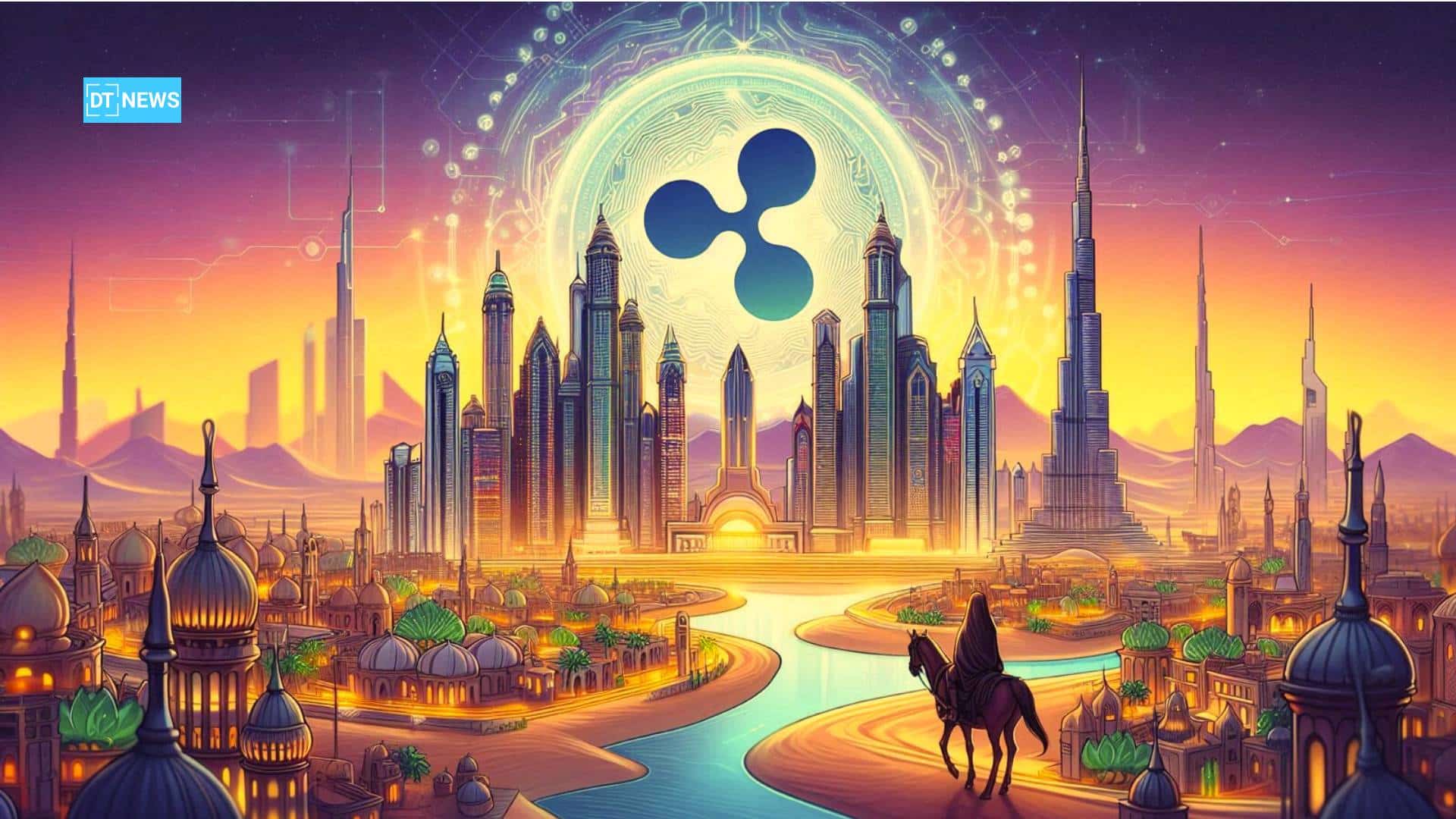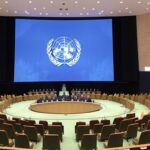Ripple has reaffirmed its global vision for blockchain innovation by throwing its weight behind Dubai’s growing reputation as a Dubai crypto hub. The comments came during the Dubai Fintech Summit where Ripple President Monica Long met with Sheikh Ahmed bin Saeed Al Maktoum, a key figure in shaping Dubai’s economic strategy.
- Ripple’s Dubai Play
- Why Dubai Matters for Ripple’s Global Strategy
- Ripple and MENA: A Growing Relationship
- Ripple’s Broader Vision in a World of Uncertainty
- Conclusion
- FAQs
- What did Ripple announce during the Dubai Fintech Summit?
- Who were some of the officials that Ripple’s President met in Dubai?
- Why Dubai a first choice for Ripple?
- Is Ripple licensed in Dubai?
- What is VARA?
- Glossary
This public endorsement of Ripple and Dubai’s regulatory and economic agenda could only be a sign of a deepening relationship between one of the biggest crypto companies and a jurisdiction that is becoming a magnet for Web3 innovation.
Ripple’s Dubai Play
Speaking at the Summit, Monica Long said Dubai is leading the way in creating digital asset frameworks.
“We are impressed with the leadership Dubai is showing in becoming one of the world’s leading digital asset hubs,” she said, according to sources.
Her meeting with Sheikh Ahmed revealed a shared belief in building a progressive financial infrastructure that supports blockchain businesses, innovation and investor protection. Based on reports, Sheikh Ahmed, Chairman of the Dubai Department of Economy and Tourism, has been driving the emirate’s fintech transformation and championing initiatives that promote diversification and sustainable tech growth.

Why Dubai Matters for Ripple’s Global Strategy
Dubai’s regulatory environment has become a benchmark in the global crypto conversation. Since launching the Virtual Assets Regulatory Authority (VARA) in 2022, the city has introduced a tiered framework that offers more clarity for digital asset companies. Ripple which already has a license from the Dubai International Financial Centre (DIFC) sees this as a long-term innovation friendly model.
Ripple’s regional growth also aligns with the current market reality. While the company is still seemingly locked in legal proceedings and clarifications with the US Securities and Exchange Commission (SEC), it has turned to friendlier jurisdictions to scale. Dubai is one of the few places that offers operational freedom and regulatory predictability.
In an interview at the Summit, Ripple’s leadership confirmed that its MENA headquarters based in Dubai is expanding and focusing on enterprise blockchain adoption and regional partnerships.
Ripple and MENA: A Growing Relationship
MENA has become a key part of Ripple’s global plans. Its payment solutions powered by RippleNet and the XRP Ledger are live across corridors connecting the UAE to Asia, Europe and Africa. Dubai’s crypto friendly environment has accelerated these partnerships with local regulators seen to be actively working with companies to tailor solutions for the region.
This is relevant as Ripple looks to move beyond the XRP token, expanding its role in cross border settlements, CBDC projects and digital identity infrastructure.
Monica Long’s meeting with Sheikh Ahmed might be seen as more than just symbolic. It was an alignment between public and private entities building the next phase of the digital economy. Sheikh Ahmed who is also the CEO of Emirates Group is driving Dubai’s economic diversification and smart city ambitions.
Ripple’s presence at the Dubai Fintech Summit alongside other global fintech leaders is a sign of the city’s growing global stature. It also tells international companies that the UAE is open for business for companies looking to engage with next gen financial tools under a supportive regulatory framework.

Ripple’s Broader Vision in a World of Uncertainty
Ripple’s renewed focus on Dubai comes at a time of regulatory limbo in the US. While the company has won some partial victories in its SEC case, uncertainty remains as well as other digital asset rules. Jurisdictions like Dubai offer regulatory maturity that aligns with Ripple’s goal of financial inclusion through blockchain.
Long’s comments at the Summit suggest Ripple is not just watching Dubai but is ready to play a role in its crypto journey.
Conclusion
Ripple’s participation in the Dubai Fintech Summit and public endorsement of Dubai’s crypto policies is a big deal. As Dubai becomes the centre for blockchain regulation, talent and infrastructure, companies like Ripple are turning their attention and resources towards this emerging hub.
As the fight for regulatory clarity continues for US-based crypto companies, the UAE model could be a template for how other governments engage with the sector. For Ripple, Dubai is not just a stop on the global tour.
FAQs
What did Ripple announce during the Dubai Fintech Summit?
Ripple recognized Dubai’s leadership in regulating digital assets and its growing status as a global blockchain center.
Who were some of the officials that Ripple’s President met in Dubai?
Monica Long met Sheikh Ahmed bin Saeed Al Maktoum to discuss Ripple’s alignment with Dubai’s economic strategy.
Why Dubai a first choice for Ripple?
Dubai offers regulatory clarity, business friendly environment and access to growing MENA markets—all essential for Ripple’s growth outside the US.
Is Ripple licensed in Dubai?
Yes. Ripple has a license from the DIFC and is expanding in the region.
What is VARA?
VARA (Virtual Assets Regulatory Authority) is Dubai’s digital asset regulator. Its framework has allowed Ripple and other companies to operate with legal certainty.
Glossary
Ripple – A blockchain-based payment method for payments involving cross-border funds using its native token called XRP.
Dubai Fintech Summit – An annual meeting that marks the advent of an era as far as the UAE’s development is concerned in the area of digital finance, fintech and blockchain policy.
Sheikh Ahmed bin Saeed Al Maktoum – A top-ranking Emirati official involved in the promotion of economic and technological development in Dubai.
VARA – The Virtual Assets Regulatory Authority is the Dubai-based digital assets regulator granting licensing and compliance framework to crypto companies.
DIFC – Dubai International Financial Centre is a financial free zone providing licensing and legal infrastructure to fintech and blockchain companies.



















































































































